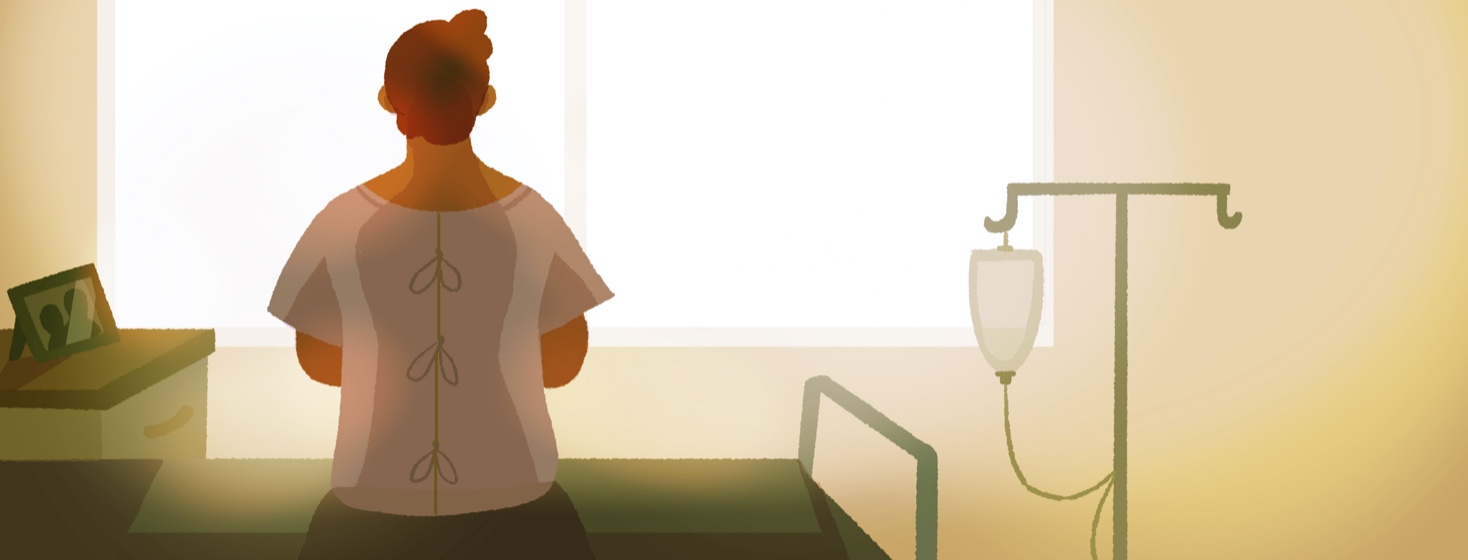Two Bags for Life
Hi! I am new here at Bladdercancer.net so, let me introduce myself. My name is Laura and I live in Wemyss Bay a small village on the West Coast of Scotland with my husband, Iain. I am also a daughter, a sister, and an aunt to my two beautiful nieces and a nephew.
My bladder cancer diagnosis story
My story began back in August 2017, when I passed what I initially thought was blood but turned out to be feces in my urine this was due to a fistula caused by late-stage bladder cancer.
After initially seeing my general practitioner, I was then referred to a urologist who after an initial cystoscopy discovered that my bladder was full of feces, he assumed I had a bowel-related illness and referred me to a colorectal doctor.
At this point, my blood labs were showing multiple issues and I was admitted to the hospital for investigation where I received a blood transfusion and a sigmoidoscopy.
Late-stage bladder and bowel cancer
At this stage, the possibility it was bowel cancer was a real one, and indeed as the bladder cancer had spread within my pelvic areas extensively. It wasn't until the pathology results post-surgery that it was 100 percent confirmed the origin was the bladder, pre-op diagnosis pointed to origin in the bladder as well.
During the weeks that followed I went into project mode (I am a Service Delivery Manager in the IT Industry with years of project management experience) and started recording everything and marking off milestones from an appointment made to a test complete.
In hindsight, this along with the unwavering support of my friends and family and especially my husband got me through the toughest months of my life this far.
A race against the clock
After weeks of CT scans, MRI, PET scans along with meetings with various medical professionals and in the intervening times, meetings taking place by my MDT (multi-disciplinary team).
A few options were considered but due to the aggressiveness of the cancer, options such as chemotherapy to reduce the tumor were quickly ruled out as we were working against the clock.
Pelvic extenuation surgery
On November 1st, 2017, I underwent a 12-hour total pelvic extenuation surgery. It is a massively invasive surgery that involves the removal in whole or in part all the organs in the pelvic area. It is only possible in a small percentage of cases, where the cancer is contained within the pelvis and brings with it a higher risk of mortality than an average operation.
Along with a greater risk than most operations of severe post-operative complications, however, it is carried out in most cases as a cure for the cancer, unlike many oncology surgeries. The trade-off however is that you are left with two permanent stomas, in my case urostomy and colostomy, but that is a small price to pay for a second chance at life.
Surviving a late-stage bladder cancer diagnosis
As I write this, I am heading for the 4th anniversary of my operation and currently (you are only as good as your last scan) I am clear of cancer. This is a great feat, given that post-op, I found out at the time of operating I only had weeks to live.
Today I live a very normal life working full-time and doing all the things I loved before.

Join the conversation